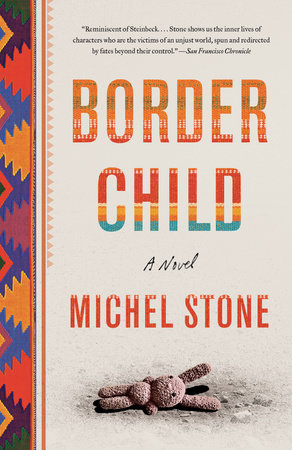Reading Group Center
- Home •
- Books by Category •
- Imprints •
- News •
- Videos •
- Media Center •
- Reading Group Center
Border Child
By Michel Stone
1. What did you make of Lilia’s decision to cross the border early? Would you have done the same thing?
2. Héctor is understandably upset at Lilia for losing Alejandra at the border. Do you think he manages his feelings toward Lilia well? Do you think he should have handled the situation differently?
3. At one point, Rosa asks Lilia why she didn’t go back to the border immediately to look for Alejandra. Lilia explains that going back to the border posed its own risks—specifically that if Alejandra had arrived in the states, it might not have been possible for Lilia and Héctor to cross into el norte again. Do you think she made the right decision, or would you have gone back to Mexico?
4. Rosa disapproves of Héctor and Lilia’s lack of allegiance to Mexico. In what ways do you understand her point of view, and what ways do you understand Héctor and Lilia’s dreams?
5. Though Héctor and Lilia were ultimately deported from the US, their time there changed them. They no longer have to dream of what life would be like in America, but had they never crossed their “eyes would still be blind to the extreme differences” of the quality of life in a different country. Do you think it ultimately benefits them to have had time in the US?
6. When Lilia and Héctor eventually discover what happened to Alejandra, they have difficult decisions to make. How do you hope this situation is settled? What do you think is the right answer?
7. The chapters in Border Child alternate between different characters’ perspectives. What did you gain by reading multiple perspectives? Did you enjoy this structure?
8. Tourists in Mexico show up in Border Child—from the Germans taking pictures of Lilia and her pottery to the Americans that Ana María serves at the restaurant. How does the portrayal of foreign tourists add to the overall novel? Did it make you think twice about how foreign tourists can affect the citizens of a country?
9. The poet Emily Dickinson said "Hope is the thing with feathers." Birds and feathers contribute significantly to the theme in this novel. How do birds and feathers represent hope in Border Child?
10. It’s been shown that reading fiction can improve empathy. Did reading Border Child increase your empathy toward immigrants? If so, in what ways?


